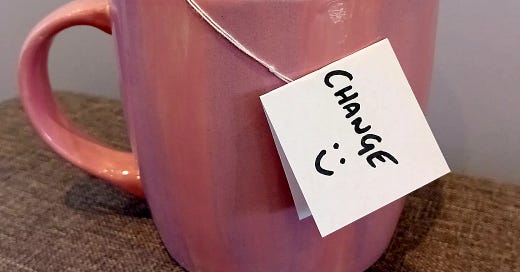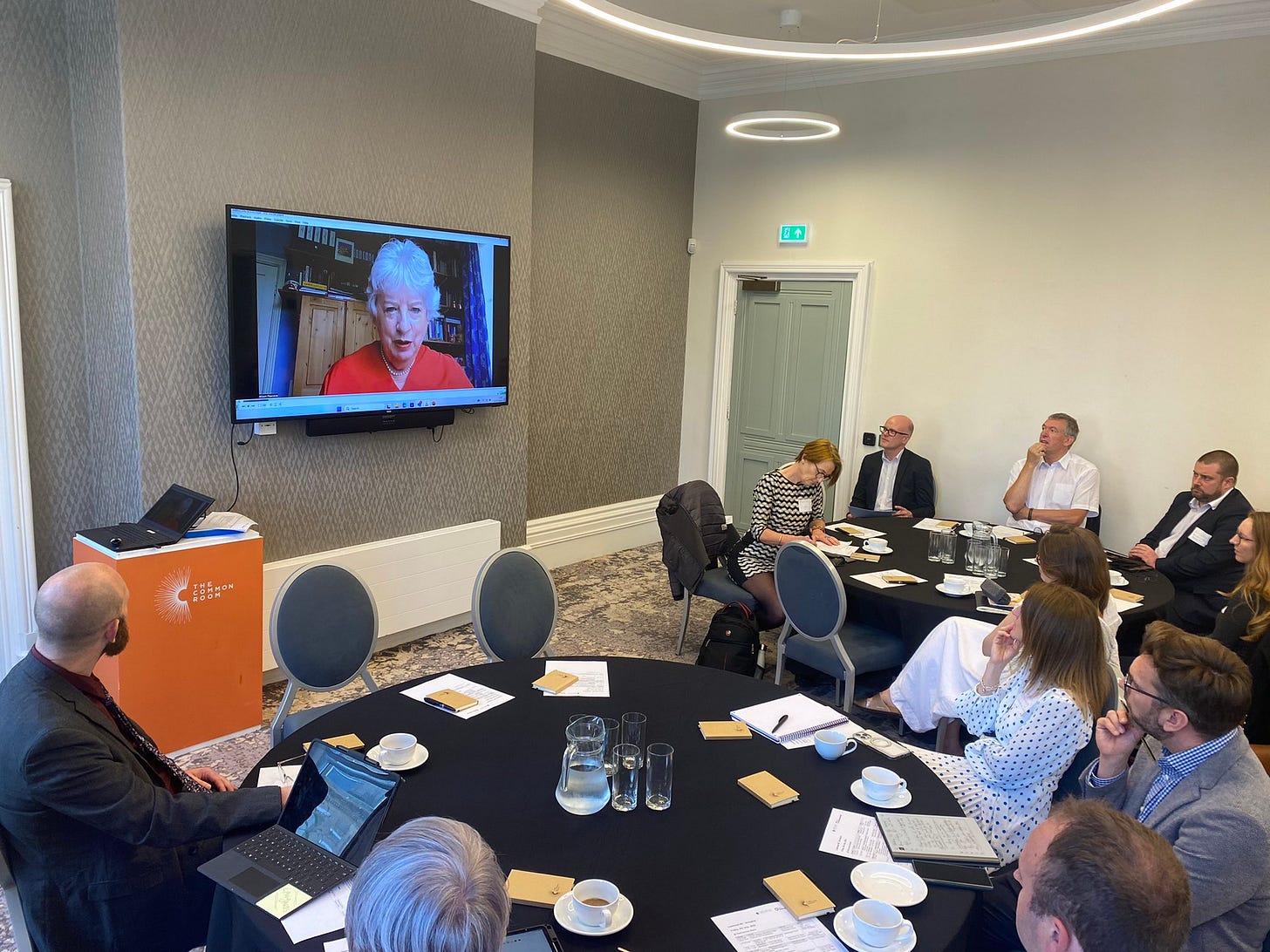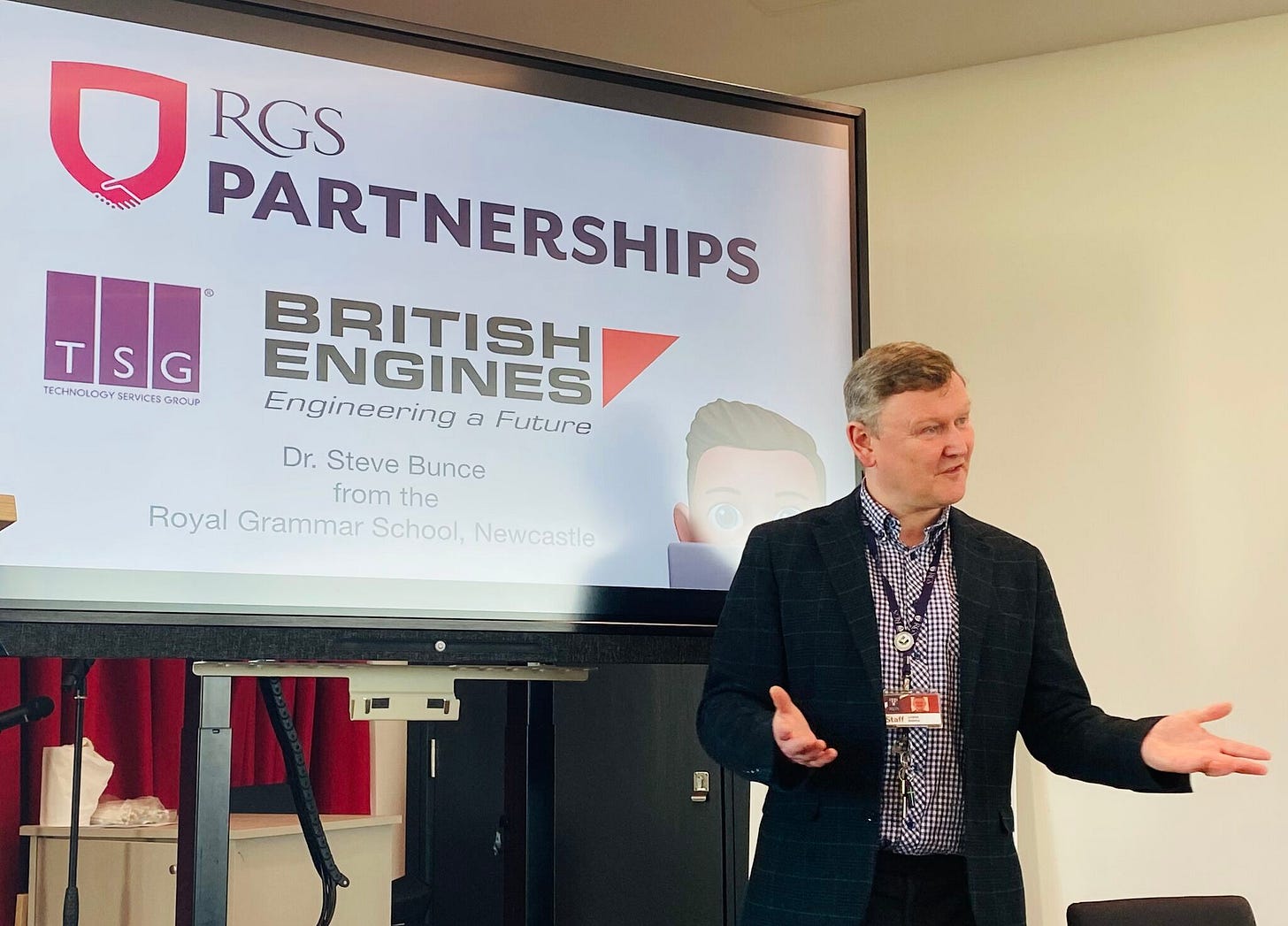☕🫖You pour the brew, I’ll provide the content
In these ‘Cuppa with a Change Maker’ blogs, I’ll feature a guest that is passionate about social justice and tackling educational inequality.
I was back on home ground for my latest cuppa, this time catching up with someone many of you across the North East will already know I hold in high regard. John Smith, Director of Partnerships at Royal Grammar School Newcastle, is someone I regularly champion; not just for his role, but for the values he brings to it.
RGS Newcastle might not be the first place you’d expect to find bold, social justice-driven outreach. It may surprise some readers. But, I’ve worked with John long enough to know he unpacks exactly how a fee-paying school can be committed to better understanding and addressing social inequality.
While much of the national conversation has centred on independent schools and VAT, what I’ve gained is far more important: insight, challenge, and solidarity from someone deeply committed to social justice. John’s values align closely with the work we’re doing in the Tees Valley and beyond.
He’s also a co-author of Tackling Poverty and Disadvantage in Schools, and a regular collaborator on pieces we write together. Beyond all that, he’s a decent human being. Thoughtful, principled, and genuinely interested in making change.
He’s challenged and changed my own assumptions about a deeply unequal system. And more importantly, he’s helping to change communities.
Over to you John….
From the outset, let’s address the elephant in the room:
How does an independent school end up in a book about poverty and disadvantage?
It’s a fair question…. and one I welcome.
Put simply, we believe deeply in the power of school partnerships to expand opportunity for all children in our region, regardless of postcode, income, or starting point. If we’re serious about addressing inequality, we all have a part to play and that includes those of us serving in the independent sector.
When I became Director of Partnerships at Royal Grammar School (RGS) Newcastle, the mandate from governors and senior leaders was both bold and clear: build meaningful relationships with local schools and communities that deliver lasting impact for young people. That meant moving beyond the traditional outreach model and towards something more rooted in shared endeavour, co-creation, and long-term thinking. It’s this that excites me and drives me!
Over time, we’ve worked to identify where RGS has the capacity to offer something distinctive; areas where we can contribute expertise, resource, or time to make a measurable difference. Equally, we’ve had to be honest about where we’re not best placed to lead and instead amplify the brilliant work of others already embedded in the community. We are clear that we do not want to make assumptions about what problems exist and what we should do. So, this means listening carefully to and learning from other networks and organisations. As Sean and Katrina Morley from Tees Valley Education often remind me, we need to “gang up on the problem, not on each other.” We are a team, not opponents.
(Source: RGS Newcastle; Hockey Festival with St. Michael’s School, Elswick)
To grow a partnerships programme with integrity and depth, we’ve had to change how we think, adopting a mindset more akin to that of a mission-driven charity than a fee-paying school. This change is what I explore in my chapter in Tackling Poverty and Disadvantage in Schools, through two central themes: Theory of Change (ToC) and Fundraising.
(Source: Tackling Poverty & Disadvantage in Schools; Bloomsbury, 2025)
Our Theory of Change
The first step was to define a long-term objective: to raise attainment and increase access to life-changing opportunities. We wanted this to be beyond the walls of RGS, and beyond the traditional reach of our sector.
From this, leaders and staff developed a strategic ToC, anchored in four outcomes:
Raising attainment in STEM
Developing and growing teachers
Supporting literacy in Primary schools
Enhancing cultural capital
Each of these strands is carefully planned and evaluated, with clear metrics or Key Performance Indicators (KPIs) in place to monitor progress. This approach not only holds us accountable but ensures that our efforts are focused on outcomes that matter most to the communities we serve. If these concepts are new to some readers, I’ve given some tools in my chapter in the book to help unpack them.
Some of these projects are small-scale and relational; others have grown into regionally coordinated programmes. But across the board, the emphasis is the same: we are not providing charity. We are building equitable partnerships, rooted in shared values and mutual benefit
(Source: RGS Newcastle; sixth form volunteers 1-1 reading with primary children)
Partnerships, not outreach…
One of the most significant learnings from this work has been the importance of humility and listening. We don’t arrive with ready-made solutions. Instead, we start with conversations. Often difficult, always honest. These relationships require time, trust, and a willingness to hear where we may have got it wrong.
True partnership only happens when we drop the ego, step out of silos, and come together in service of a bigger picture. That’s why, over recent years, we’ve invested in co-hosting round-table events and mini-conferences alongside Tees Valley Education, bringing together diverse voices to share ideas and challenge thinking.
(Roundtable in the North East hosted by RGS Newcastle, Tees Valley Education and the Chartered College of Teaching)
This spirit of collaboration is what drew me to contribute to Tackling Poverty and Disadvantage in Schools. It’s a privilege to be part of a project (because it’s more than just a book!) that values real-world action as much as academic theory, and that recognises the contribution all schools can make, state or independent, if we approach the problem with the right mindset
I believe cross-sector partnerships are an underused lever in our education ecosystem. Done well, they offer an innovative, scalable way to disrupt disadvantage and give more children access to the tools they need to thrive. Like in an orchestra, everybody has a valuable role to play in creating.
(Source: RGS Newcastle, Big Play Day)
Fundraising for sustainability
Since the pandemic, we’ve seen our partnership work evolve from informal collaboration into a structured, sustainable programme. The traditional model, relying on the spare capacity and goodwill of individual teachers, can only take us so far. To grow this work responsibly, we’ve built a funded team of specialist teachers employed by RGS but working predominantly in state-funded schools.
In 2025–26, this team will include eight subject specialists across Maths (three teachers), Physics, Robotics, Rugby, and Computer Science (two teachers). They will work shoulder-to-shoulder with local schools, delivering subject-specific interventions, mentoring pupils, and supporting teacher development.
(Source: RGS Newcastle, Digital Schoolhouse with Chris Wilde)
This model is made possible through the generosity of a diverse group of funders: the Reece Foundation, British Engines, TSG, the Hg Foundation, RGS alumni, England Rugby, and others. It’s a collective investment in a shared mission—and an example of what’s possible when business, philanthropy, and education align with purpose.
(Steve Bunce presenting at the Tees Valley Education and RGS Newcastle hosted ‘Classroom to Careers’ event in Teesside at the Port of Middlesbrough)
We now feel confident that this approach works. The next phase is about scaling. STEM Horizons, our new national project funded by the HG Foundation, will place Computer Science teachers in five regions across the country. Each will work with five local schools to raise attainment in GCSE Computer Science, focusing particularly on pupils from low-income backgrounds and girls, who remain underrepresented in the tech and creative sectors.
The programme will be coordinated from RGS Newcastle and independently evaluated by the National Foundation for Educational Research (NFER). Our hope is to generate national learning around what robust, well-funded partnerships can achieve. At scale and with rigour.
This isn’t a finished product.
We’re still learning, still refining. But one thing’s certain: if we’re serious about breaking cycles of inequality and widening opportunity, then we need to start building more bridges between sectors, not walls.
Watch this space.
🫖 Fancy a cuppa?
Could you be one of my next guests?
Here's a link that will take you to a quick form about the blog series. I'll be running 1-2 a month, so I would love to add prospective authors to the schedule.
Please do pass the link on to other change makers you might know of.
Ideas for content might include:
Particular project making a difference to the lived realities of hardship for others
Innovative approaches to understanding and/or tackling inequalities
Signposts of further support, free resources etc on a specific issue
Ideas or examples do not have to be school based
I’m happy to promote approaches, strategies and ideas - but avoid using the blog as a sales pitch for a particular product or traded offer please! (Unless it makes sliced bread look like a prehistoric idea….) :)













